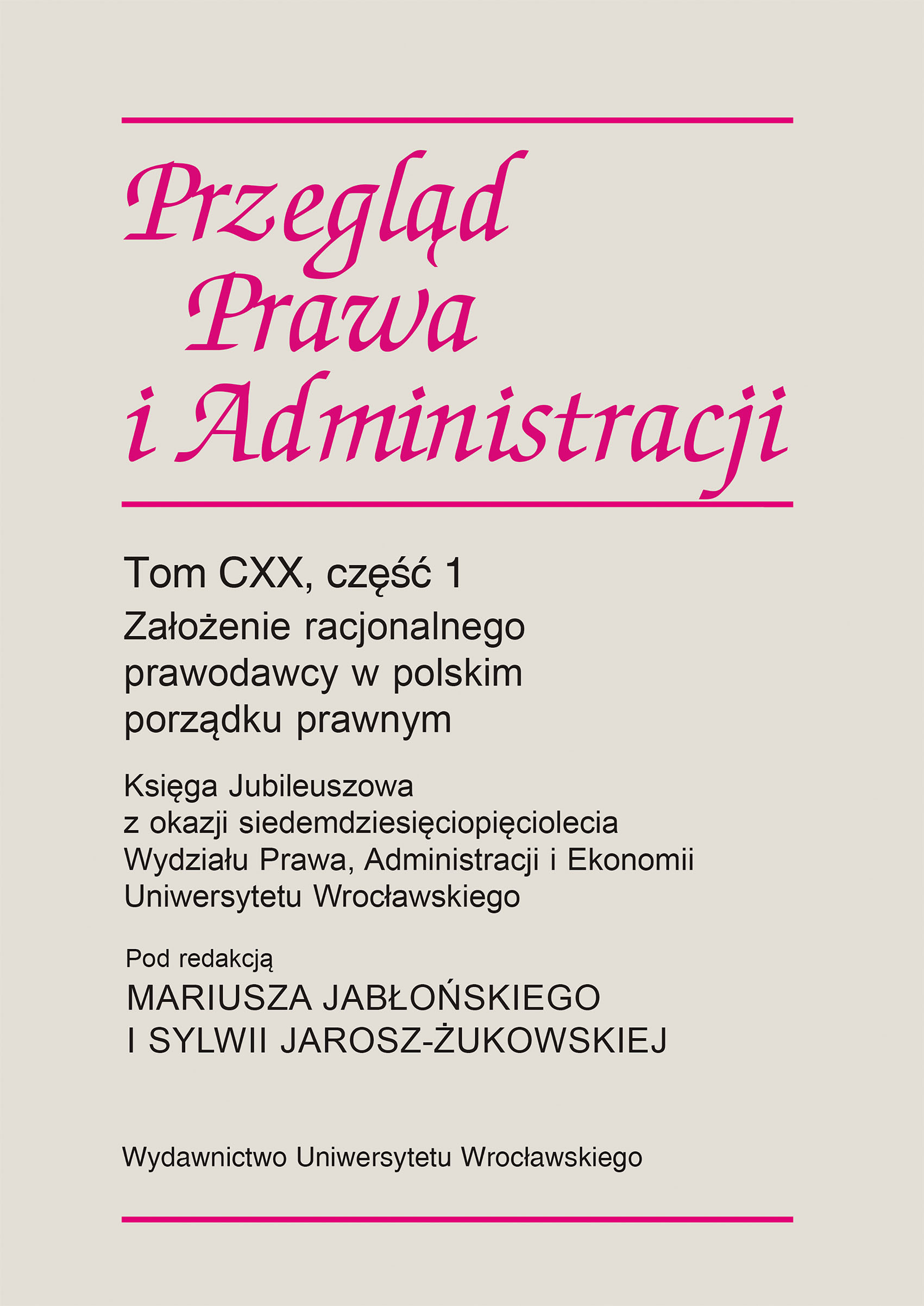

ISSUES IN ADMINISTRATIVE LAW AND ADMINISTRATIVE SCIENCE

The idea of a rational legislator is based on the assumption that it is possible to make wise, prudent, and fair law. The rational legislator sets goals that can be achieved by law and uses adequate means to reach them. Corruption in public administration is regarded as its pathology. It is equated with intentional violation of the law, but also with negatively assessing behaviour from a moral point of view, consisting in the instrumental use of law by using its loopholes or imperfections. The rational legislator, recognising the need to counteract corruption in public administration, creates anti-corruption mechanisms using the norms of preventive administrative law. Anti-corruption tools in public administration include limitation of business activity, compulsory submission of property statements, competition by recruitment for public positions and prohibition of subordination be-tween relatives.